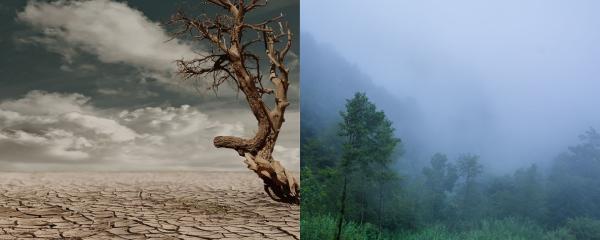
IIT Palakkad study shows how different indices used to predict drought combined with effects fof climate change can lead to different climate predictions for the future

IIT Palakkad study shows how different indices used to predict drought combined with effects fof climate change can lead to different climate predictions for the future
Every year, the 5th of June is observed as the World Environment Day to “encourage worldwide awareness and action to protect our environment”. For 2019, the theme is ‘Air Pollution’, and the host country is China. On this occasion, Research Matters caught up with three leading scientists from the country that are actively pursuing research on different aspects of air pollution. The three researchers, Prof. A R Ravishankara, Prof. S K Satheesh and Prof. Navakanta Bhat shared their work and thoughts on the ‘burning’ problem of air pollution.
Researchers from IIT Bombay have designed a protein-based carrier for delivering drugs into cancer cells.
Researchers at the Karnataka Health Promotion Trust, Bengaluru, have assessed the cost effectiveness of a self-help group program, called Parivartan, in Bihar. They studied the economics of implementing maternal health programs through self-help groups.
Researchers from IISc, Bengaluru, have designed a smartphone-based therapy and hearing aid.
Today, a majority of us are glued to our smartphones. In the midst of swiping and scrolling through our social media applications, little would we know about an entire community that exists right at the tip of our fingers -- the social community of bacteria on our screen that is a ‘social network’ on its own!
Researchers from IIT and IIIT Delhi design an algorithm to find rare cells
Scientists from Indian Institute of Science (IISc), Bengaluru, have developed a novel detonation–driven shock tube device for needle-free, painless drug delivery method. If commercialized the technology could replace the dreaded injections used in drug delivery.
The extensive use of fireworks, particularly during festivals like Diwali, releases large amounts of harmful gases and toxic substances into the atmosphere. As a result, the air gets polluted and can affect our health. In a recent study, researchers from the Indian Institute of Technology Guwahati and the Indian Institute of Technology Delhi have analysed the excessive air and noise pollution caused by firecrackers during Diwali and their potential impact on health.
Two Russian institutes—A.N.Severtsov Institute of Ecology and Evolution and Moscow State Agricultural University, and the Centre for Cellular and Molecular Biology, India, have compared the chemical contents of the faecal matter of the Amur and Bengal tigers to examine the stress levels of these tigers in India and Russia.
A long-standing mystery in the evolution of life seems to be solved in a study by researchers from the Indian Institute of Science, Bengaluru, Cedars-Sinai Medical Center, USA, and the Cleveland Clinic Foundation, USA. The study, published in The Journal of Biological Chemistry, provides a convincing explanation about the fusion of two genes in an ancestor of today’s animals, about a billion years ago.